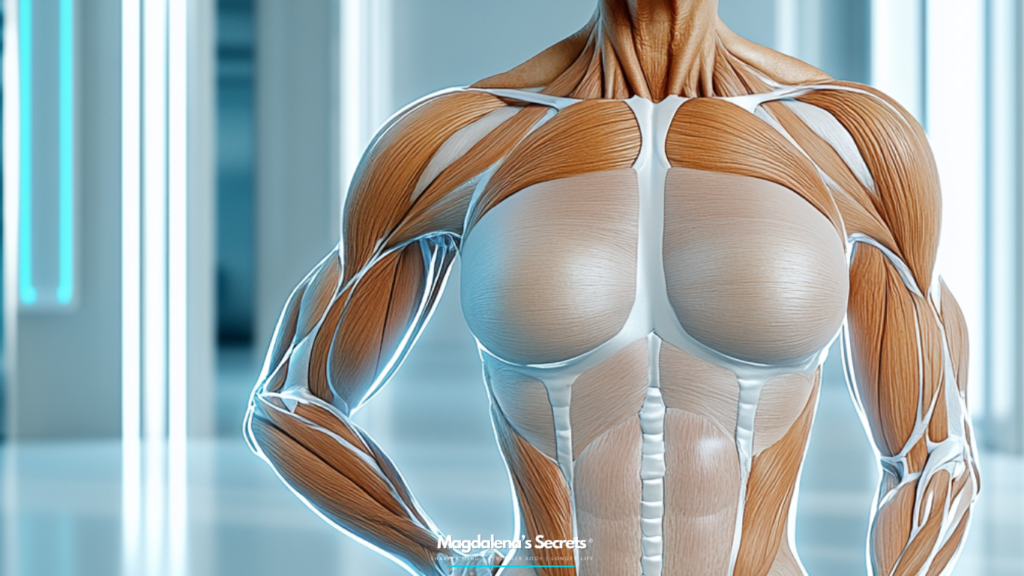Menopause isn’t just the end of periods — it’s a whole-body, whole-life transformation. And yet, for millions of women, it remains one of the most misunderstood and under-supported health transitions. Thankfully, leaders like Dr. Lisa Mosconi and Dr. Mary Claire Haver are pioneering a smarter, science-backed, and compassionate approach to menopause care.
Let’s explore what every woman deserves to know — not just to survive this chapter, but to thrive in it.
When Does Menopause Start — and Why?
Most women enter menopause between ages 45–55, though the journey can begin earlier. It unfolds in three key phases:
- Perimenopause – Begins in the late 30s or 40s. Characterized by hormonal fluctuations (especially estrogen and progesterone), irregular cycles, hot flashes, sleep changes, and mood swings.
- Menopause – Officially starts after 12 consecutive months without a period. Estrogen plummets. Symptoms like vaginal dryness, joint pain, anxiety, and brain fog intensify.
- Postmenopause – The phase after menopause, lasting the rest of life. Hormones stabilize at lower levels. Long-term risks increase: osteoporosis, heart disease, cognitive decline, and metabolic shifts.
“Menopause begins in the brain, not in the ovaries.” — Dr. Lisa Mosconi, author of The XX Brain
Why It Happens — And Why the Brain Feels It First
Menopause is driven by biology. Women are born with a finite number of eggs. As ovulation stops, key reproductive hormones — estrogen, progesterone, and testosterone — decline. But it’s not just a hormonal shift. It’s a neurological recalibration.
Estrogen helps regulate brain energy, sleep, memory, and emotional processing. When it drops, the brain feels it. That’s why brain fog, irritability, and fatigue are so common.
How Many Women Are Affected?
- By 2030, 1.2 billion women globally will be in menopause.
- Over 75% experience symptoms that interfere with daily life.
- 1 in 5 women consider quitting their job due to unmanaged symptoms (Mayo Clinic, 2023).
Yet shockingly, only a small percentage of healthcare professionals receive formal menopause training.
It’s time to stop dismissing symptoms as “just aging” — and start addressing them with real care.
What Do Experts Recommend? A Smart, Science-Backed Plan
1. Hormone Replacement Therapy (HRT)
- Still the gold standard for symptom relief.
- Eases hot flashes, night sweats, vaginal dryness, and supports bone and brain health.
- Most effective when started within 10 years post-menopause.
2. Anti-Inflammatory Nutrition
- Dr. Haver’s Galveston Diet focuses on:
- Healthy fats, lean proteins, fiber-rich vegetables
- Intermittent fasting to support insulin sensitivity
- Avoiding sugar and processed foods to reduce inflammation
3. Movement as Medicine
- Resistance training → stronger bones, preserved muscle
- Cardio (walking, biking, swimming) → heart and brain health
- Yoga → flexibility, mood, joint support
Just 10–20 minutes a day can reduce hot flashes and improve sleep.
4. Brain-Boosting Strategies
- Estrogen drop impacts memory and focus — but nutrition and movement help.
- Key nutrients:
- Omega-3s (from fatty fish or algae oil)
- Polyphenols (berries, greens, olive oil)
- Vitamin D + magnesium
5. Prioritize Sleep Like It’s Medicine
- Menopause often disrupts sleep — which affects every other system.
- Tips:
- Keep your bedroom cool and dark
- Avoid caffeine and alcohol at night
- Try magnesium glycinate, melatonin, or CBT-I therapy
6. Support, Supplements & Community
- For those who skip HRT, try:
- Black cohosh, ashwagandha, flaxseed (natural phytoestrogens)
- Adaptogens for energy and resilience
- Most importantly: connect. Communities help women feel seen, heard, and empowered.
Final Thoughts: Menopause Is a Transition — Not a Decline
It’s not about slowing down — it’s about reclaiming your health, your energy, and your voice.
“Menopause isn’t something to endure. It’s a stage to understand, support, and embrace — with confidence and clarity.” — Dr. Mary Claire Haver
“When we optimize our health through this transition, we protect our brains, bodies, and futures.” — Dr. Lisa Mosconi
Let’s break the silence. Let’s educate. Let’s empower. Because menopause deserves a seat at the table — and you deserve to thrive.




